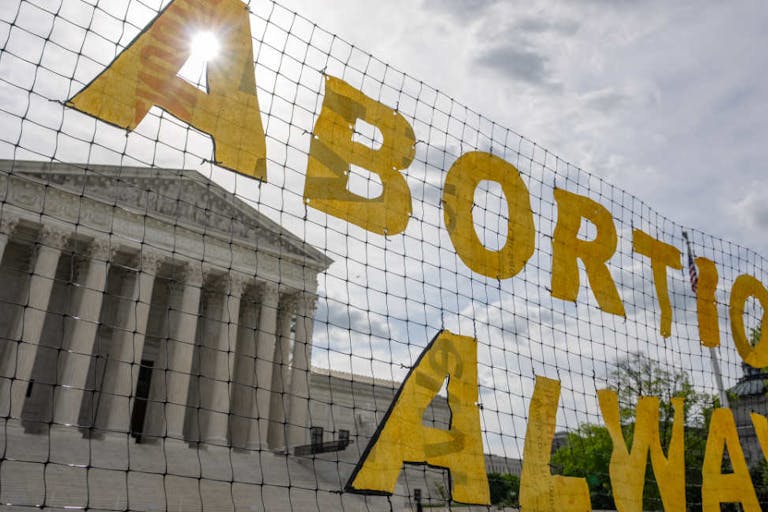
A growing number of Americans call themselves ‘pro-choice’ – but what’s really behind it?
Nancy Flanders
·
Newsbreak·By Calvin Freiburger
Arizona woman allegedly faked cancer to get tax-funded late-term abortion
An Arizona woman is on trial for falsely claiming she had cancer to get Medicaid funds for a late-term abortion.
Chalice Renee Zeitner is charged with fraud, identity theft, forgery, and other related offenses for a sequence of events that started in 2010, when she told doctors her preborn baby had been exposed to radiation during chemotherapy, necessitating an abortion.
After her child was determined to be healthy, she allegedly forged a letter from a doctor confirming the abortion was medically necessary.
A year after the abortion, a C-section for her next pregnancy found no indication that Zeitner ever had cancer, and the doctor she listed as having treated her for cancer denied he had done so.
Zeitner’s attorney maintains that she sincerely believed she had cancer at the time, but Assistant Attorney General Maura Quigley argues that her duplicity is clear, and extended well beyond the abortion itself: “She had cancer in order to get a pregnancy termination that was paid for by the state of Arizona and money from a cancer fundraiser when she never had cancer at all.”

In addition to the more than $6,000 spent on her abortion-related medical bills, Zeitner allegedly used a fake social media identity to manipulate her boyfriend to set up a fundraising website for her cancer treatment, and defrauded two separate charities for thousands of dollars.
Health exceptions for abortion restrictions are controversial because the Supreme Court’s 1973 Doe v. Bolton decision defines “health” in the context of abortion as “all factors – physical, emotional, psychological, familial, and the woman’s age – relevant to the wellbeing of the patient.” Pro-lifers argue this is broad and subjective enough that it could be manipulated to justify any abortion, rendering pro-life laws toothless.
Live Action News is pro-life news and commentary from a pro-life perspective.
Contact editor@liveaction.org for questions, corrections, or if you are seeking permission to reprint any Live Action News content.
Guest Articles: To submit a guest article to Live Action News, email editor@liveaction.org with an attached Word document of 800-1000 words. Please also attach any photos relevant to your submission if applicable. If your submission is accepted for publication, you will be notified within three weeks. Guest articles are not compensated (see our Open License Agreement). Thank you for your interest in Live Action News!

Nancy Flanders
·
Politics
Nancy Flanders
·
Human Interest
Nancy Flanders
·
International
Angeline Tan
·
Human Interest
Isabella Childs
·
Human Interest
Bridget Sielicki
·
Guest Column
Calvin Freiburger
·
Abortion Pill Reversal
Calvin Freiburger
·
Guest Column
Calvin Freiburger
·
Abortion Pill Reversal
Calvin Freiburger
·
Activism
Calvin Freiburger
·